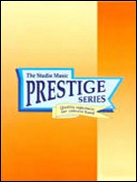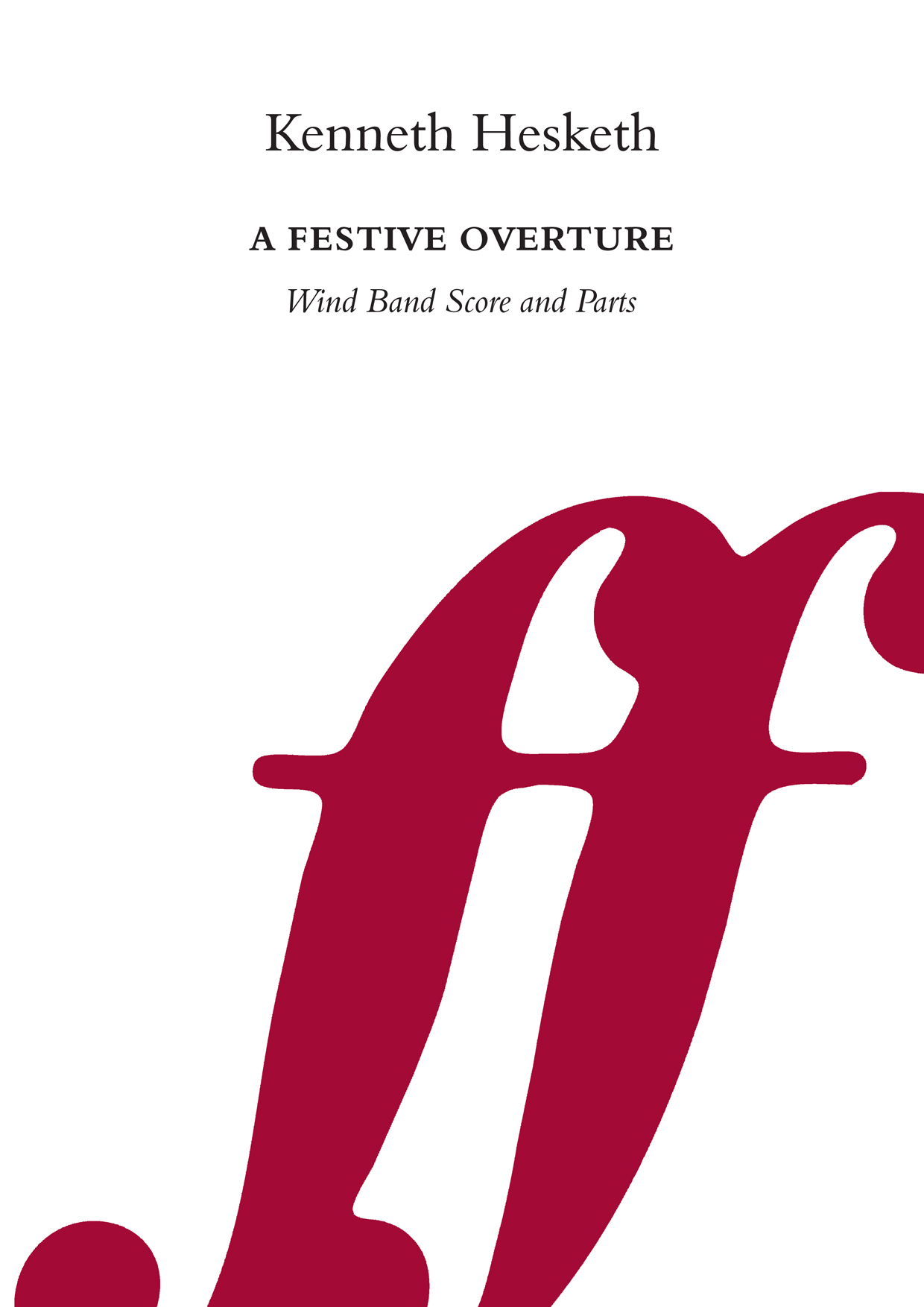Results
-
 £109.99
£109.99A Tribute to Bach Wind Band Set (Score & Parts)
Johann Sebastian Bach could not have wished for a better accolade. A Tribute to Bach is a daring arrangement of Bach's Partita no.2 for pianoforte and a homage to the grandmaster of Baroque in a modern orchestration. Arranger Axel Norman has achieved this by adding percussion tastefully to the original. The woodwind section of the band, however, plays the leading parts. 06:30
Estimated dispatch 7-14 working days
-
 £32.95
£32.95EUPHONIUM CONCERTO No.1 (Sparke) (Prestige Concert Band Extra Score) - Sparke, Philip
Extra Score. This work is in three movements which follow each other without a break. The first has driving rhythms with a central cantabile tune; the second is based around a soulful melody and includes the work's two cadenzas; the third is a sort of caccia with the soloist chasing his way to a florid finish.
Estimated dispatch 7-14 working days
-
 £164.95
£164.95EUPHONIUM CONCERTO No.1 (Sparke) (Prestige Concert Band Set) - Sparke, Philip
Score and Parts. This work is in three movements which follow each other without a break. The first has driving rhythms with a central cantabile tune; the second is based around a soulful melody and includes the work's two cadenzas; the third is a sort of caccia with the soloist chasing his way to a florid finish.
Estimated dispatch 7-14 working days
-
 £24.95
£24.95IT'S A LONG WAY TO TIPPERARY (Military Band: Unusual Instrumentation) - Douglas, Shipley
Marchcard size. Instrumentation: Flute/Piccolo in E flat only, Horns in E flat only, No Tenor Sax) "It's a Long Way to Tipperary" is a British music hall song written by Jack Judge and co-credited to, but not co-written by, Henry James "Harry" Williams. It was allegedly written for a 5 shilling bet in Stalybridge on 30 January 1912 and performed the next night at the local music hall. Judge's parents were Irish, and his grandparents came from Tipperary. It became popular among soldiers in the First World War and is remembered as a song of that war.
Estimated dispatch 7-14 working days
-
 £43.95
£43.95MERRY MOZART CHRISTMAS, A (Concert Band) - Lewis, Brian
Take some of Mozart's most beloved themes, sprinkle in a dash of holiday tunes and what do you get? A Merry Mozart Christmas, of course! This clever arrangement combines themes from A Little Night Music, The Marriage of Figaro, Turkish Rondo and Symphony No. 40 with traditional Christmas tunes you'd never expect. A true audience pleaser that your students will love to play!
Estimated dispatch 7-14 working days
-
£75.00
A Festive Overture - Kenneth Hesketh
A Festive Overture is bravura in nature, with important solos for upper winds and trumpets. The outer sections are busy and colourful and frame a more expansive, but no less urgent, middle section which develops a large arching oboe and clarinet theme. The work ends as it began, with excitement and exuberance.
In stock: Estimated delivery 1-3 days
-
 £60.99
£60.99Solveig's Song (from Peer Gynt Suite No. 2) - Edvard Grieg
Composed by Edvard Grieg in 1875, music from Peer Gynt was originally incidental music for Henrik Ibsen's five-act play. The beautiful Solveig's Song is from the second orchestral suite later extracted by Grieg. Johnnie's tender setting opens with a lyric theme scored for the trumpet section. A brief andante section features the woodwinds before returning to the opening melody this time richly scored for full band. A beautiful work for teaching lyric style playing.
Estimated dispatch 7-14 working days
-
 £37.95
£37.95Rockin' a Round
Everyone loves a round, and your audience will too when you put Rockin' a Round on your next concert. John O'Reilly has taken some of the most famous rounds and placed a fun rock-style beat underneath. Your audience's toes will be tapping in no time! Correlated with Yamaha Band Student, Book 1, page 12.
Estimated dispatch 7-14 working days
-
£122.50
A Patriotic Salute - James L. Hosay
No one writes more exquisitely patriotic music than James L. Hosay, the former head arranger for "Pershing's Own" United States Army Band in Washington D.C. Dedicated to the memory of Mr. Hosay's mentor, Dr. Sydney Berg, this moving symphonic setting of THE STAR SPANGLED BANNER is a rich and compelling way to bring a your concert to a close. Of course it works equally well anywhere the National Anthem would be appropriate for performance.The unusual 4/4 meter setting with artfully crafted reharmonizations and lush counterpoint gives each listener cause to reflect on the importance and meaning of this melody to patriotic Americans everywhere.Inspired!
Estimated dispatch 7-14 working days
-
£67.50
Theme from Symphony no. 4 - Felix Mendelssohn Bartholdy
Mendelssohn for band! Mendelssohn is known for the beauty of his melodic themes, and this one from the "Italian" Symphony certainly fits that category. THEME from SYMPHONY #4 gives impressions of the people and landscapes of this beautiful country. A bucolic sense pervades the score and translates into a restful and uplifting musical experience.Douglas Court has done a marvelous job in bringing the orchestral textures to the young band stage. His considerable experience with directing young bands and his many fine compositions expressly for musicians at this level give him the ability to make the music as playable as it is authentic. Don't miss it!
Estimated dispatch 7-14 working days

